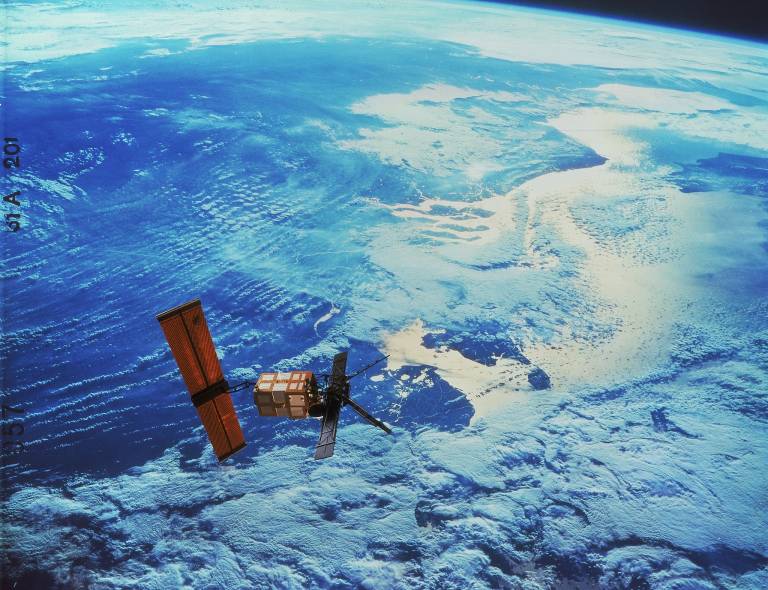Using artificial intelligence to support sustainable development
A UCL MSc course is empowering students to explore how technologies such as artificial intelligence can help and hinder efforts to achieve the UN SDGs.

17 August 2022
New technologies including artificial intelligence (AI) and machine learning have shown promise in modelling and understanding the effects of climate change, as well as supporting the energy transition. However, the field is still young, and much remains to be done.
“Without appropriate computational design and governance, the same technologies themselves have the potential to create cascading negative impacts,” explains Dr Maria Perez-Ortiz (UCL Computer Science).
A new MSc in Artificial Intelligence for Sustainable Development, run by UCL Computer Science, is giving students the skills to tackle real-world sustainability problems using AI and machine learning.
““Students are encouraged to think critically about a particular application of artificial intelligence that relates to one of the SDGs.”
The MSc’s core module, developed by Dr Perez-Ortiz, provides computer science students with an overview of the UN Sustainable Development Goals, as well as an understanding about how AI might help to achieve them or hinder our progress. It also empowers students to measure and analyse the broader impact of AI, in order to ensure the technologies themselves become sustainable.
“During the course, students are encouraged to think critically about a particular application of artificial intelligence that relates to one of the SDGs,” explains Dr Perez-Ortiz. “They do an in-depth analysis of its impacts and consider aspects relating to social, economic and environmental sustainability.”
The course brings together the technical aspects of AI with the environmental and humanitarian issues that need to be addressed. Through strong links with United Nations Educational, Scientific & Cultural Organisation (UNESCO), the MSc gives students unprecedented access to experts and potential project opportunities.
“Technology, and more specifically AI, can enable many SDGs – such as SDG13: Climate Action – through smart agriculture tools, optimisation of the energy grid, better climate simulations and more,” explains Dr Perez-Ortiz. “But without due consideration, it could also inhibit our progress towards many other SDGs, for example, by increasing inequalities or allowing large-scale bias.”
During the MSc programme, students have a chance to apply their new-found skills in real life, through working on their coursework in partnership with an external stakeholder that is facing a sustainable development challenge. For example, previous students explored AI technology that analyses satellite images to identify illegal, unregulated fishing. The application locates objects in the sea as well as vessels to help to locate and monitor fishing vessels.
In another project, a student investigated an AI tool developed to measure and predict crop yields in the US, which they found was less effective when applied to a dataset from Brazil, highlighting that AI tools are not necessarily broadly applicable.
“This exciting course gives students the ability to blend technological know-how with a critical mindset, then applies it to social, economic, and environmental issues,” enthuses Dr Perez-Ortiz. “Students graduate with a set of skills that are essential in today’s world.”
 Close
Close


